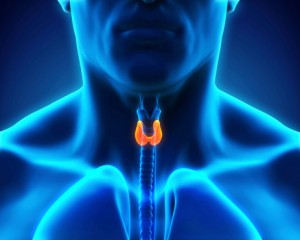Post-Surgical Care Critical To Optimal Weight Loss After Bariatric Surgery
Those patients who were most compliant with surgeon recommendations after bariatric surgery lost 35 percent more weight the first year and tend to keep more weight off even after five years, according to new patient and bariatric surgeon surveys conducted by Harris Interactive, for the American Society for Metabolic & Bariatric Surgery (ASMBS).
The survey of 208 gastric bypass patients and 201 gastric band patients found that on average compliant patients lost more than 123 pounds the first year, while the less compliant lost 92 pounds. At the five year mark, compliant bariatric surgery patients lost more than 127 pounds while less compliant patients lost 100 pounds. Bariatric surgeons also place a high value on follow-up care programs. In a separate survey of 282 bariatric surgeons, 94 percent said follow-up care is just as or even more important to successful outcomes than the surgery itself. Both surveys were sponsored by Ethicon Endo-Surgery, Inc.
"While surgeons have always understood the importance of follow-up care, this survey helps quantify how much of a difference it really makes," said Scott Shikora, MD, ASMBS President and Chief of General Surgery, Bariatric Surgery and Minimally Invasive Surgery at Tufts Medical Center in Boston. "Compliance can mean the difference between a good result and a great result."
Surgeons typically recommend post-surgical activities including regular exercise, nutritional counseling, maintaining a food diary, psychological counseling, diet modification, keeping doctor's appointments and participation in support groups. However, 66 percent of surgeons believe there is no consensus on what constitutes bariatric surgery follow-up care. About half (48%) say they did not receive bariatric surgery follow-up care education as part of their training or fellowship.
Surgeons believe regular exercise (67%), changing eating habits (58%) and support group attendance (34%) are the most difficult components of aftercare for patients and that while both groups of patients face compliance challenges after surgery, gastric band patients have a more difficult time with it than gastric bypass patients (59% vs. 49%). In addition, surgeons indicate that missed doctor appointments, insurance issues and long-distance travel are the reasons they do not see their patients more often.
"Techniques in bariatric surgery are consistent, but follow-up care tends to vary from bariatric program to bariatric program," said Alan Wittgrove, MD, a past president of the ASMBS and medical director of the Wittgrove Bariatric Center and Scripps Memorial Hospital in La Jolla. "There are a lot of good programs out there but there is a need to standardize follow-up care so patients can achieve the best outcomes possible."
Gastric band patients who participated in five or more components of aftercare lost 30 percent more weight and reported having a significantly better quality of life than gastric band patients who participated in four or less. Compliant gastric bypass patients also lost more weight than their less compliant counterparts, but their success was not linked to any specific number of post-surgical activities. Gastric bypass patients (77%) indicated greater ease in complying with doctor recommendations than gastric band patients (66%).
It's not only what patients and surgeons do after surgery that can determine success. The vast majority of surgeons have patients engage in educational activities, nutritional counseling, medically supervised diet and exercise programs, support groups, and goal setting prior to surgery. Patients who felt prepared were twice as likely (39% vs. 18%) to say compliance after surgery was easy than those who felt "very or somewhat" unprepared for surgery. Surgeons believe commitment to diet, exercise and making lifestyle changes are the most important factors that patients should know about to succeed after surgery.
-
Diet For Idiots -- A Plan That Will Work For You Diet And Weight Loss Tips.
The market for weight loss programs is vast and there are many diff
-
Easy Weight Loss Achievement Through Hypnosis
Easy weight loss achieved through hypnosis is the best way when compa
-
Are You Presently Looking For A New Strategy To Lose Weight?
When it comes to weight loss, using with the latest trends may b
-
The Importance Of Healthy Eating Plans - Simple Steps For Healthy Eating Habits!
Healthy eating plan from prenatal to early childhood works as a key el
-
5 Tips to not getting fat while you are on holiday
Tip 1: Stock up on non perishable foods. Foods such as beef jerky,
-
Weight Watchers On-the-Go Serves Up Key Weight-Loss Tools
If you currently attend Weight Watchers meetings, Weight Watchers eToo
- DON'T MISS
- All Weight Loss is Not Equal
- Losing Pregnancy Weight
- Probably The Best Weight Loss Program Ever
- Balanced Weight Loss Diets
- Healthy Weight Loss Tips for Men
- Cant Lose Weight It May Not Be Your Fault
- Gastric Bypass Surgery And Weight Loss
- Creating The Perfect Diet Plan For You
- Why Superfoods Arent Necessarily Super for Losing Weight
- Weight Loss Is Easy With Super Slim Pomegranate




